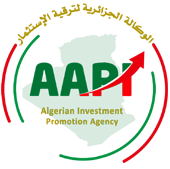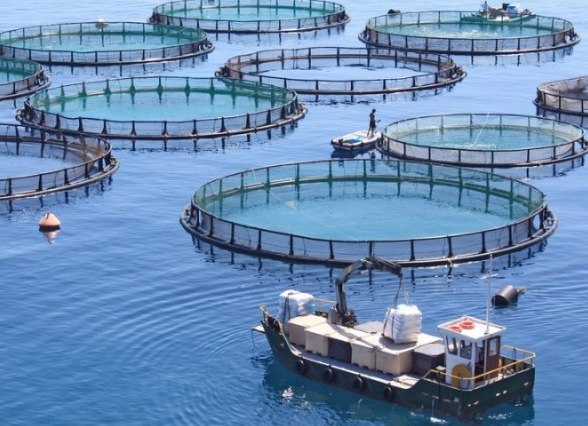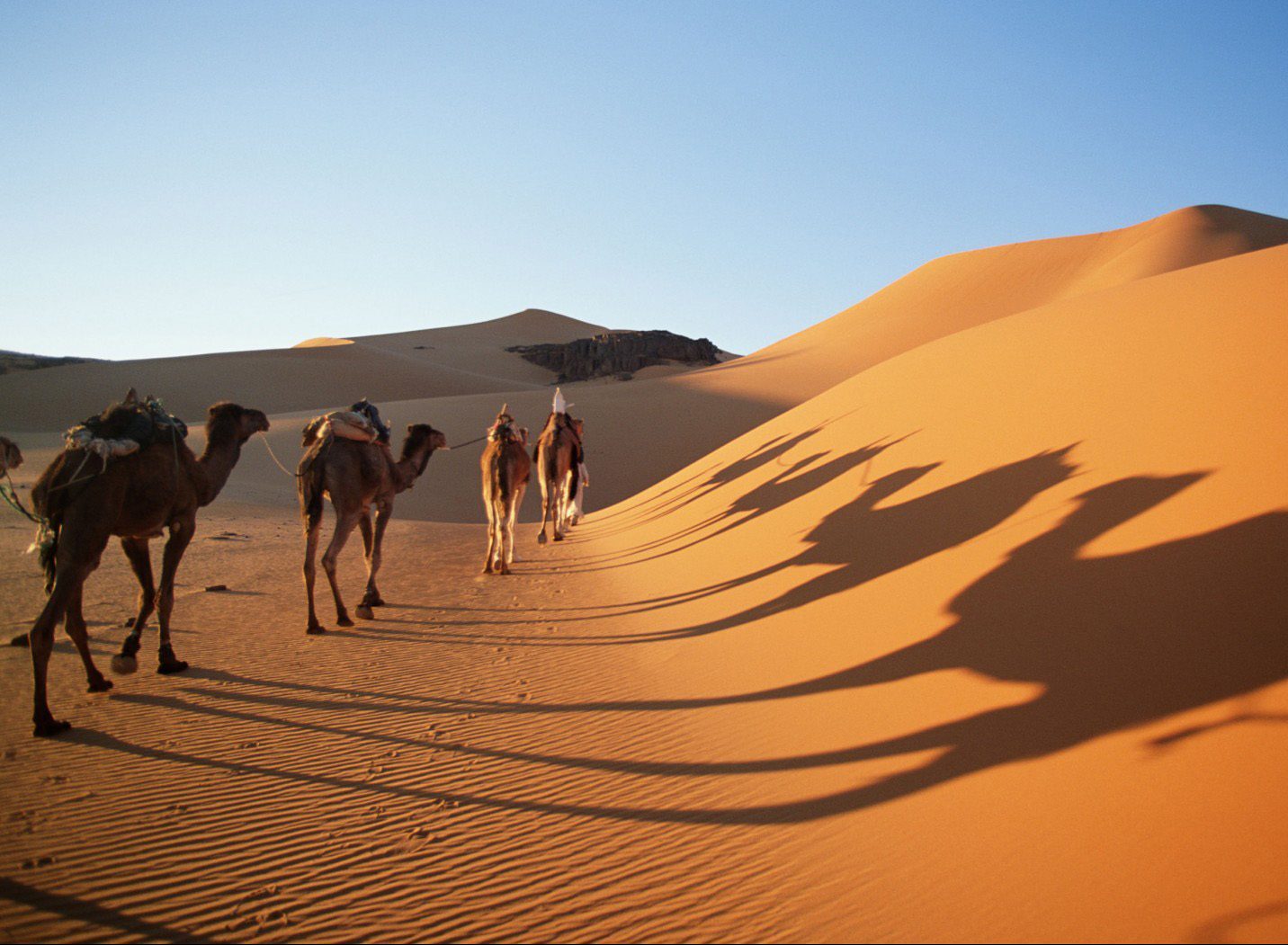
Sectoral
The postal and telecommunications sector is one of the most dynamic sectors in the Algerian economy. It is a particularly promising sector, experiencing rapid growth, mainly due to population growth, urbanization, and the digitization of the economy. Algeria’s telecommunications industry offers various investment opportunities due to the rapid development of connectivity, increasing demand for electronic communication services, and the expansion of ICT infrastructure. To ensure transparency and fair competition and to promote the attractiveness of both domestic and international investors, the government has established a stable legal framework through Law No. 18-04 of May 10, 2018, which sets out the general rules relating to postal services and electronic communications.
Investment Opportunities:
Activities in the postal and electronic communications sector are regulated and open to both domestic and foreign investors, in compliance with rules of transparency and equal treatment according to current legislation. Here are some areas for development:
- Development of the digital economy.
- Technology parks for innovation, R&D, and the ICT industry.
- Electronic payment systems.
- Introduction of e-learning and e-logistics platforms.
- Telemedicine.
- Space infrastructure.
- Antennas and satellites.
- Electronic certification.
- Data security systems for banks.
- Modernization of postal services.
- Expertise and training.
- Computerization of public services (e-administration).
The agriculture sector in Algeria is a key sector and constitutes a major pillar of the national economy due to its contribution to employment and the national GDP. It accounts for a population of 2.6 million agricultural laborers, representing over 74% of rural workers and 24% of the national workforce. Moreover, it ensures the country’s food security by covering more than 74% of the national needs for agricultural products.
The government has implemented all the necessary tools through a coherent policy aimed at strengthening the country’s food security and promoting a modern and efficient agriculture, creating wealth and jobs. Thus, the policy for the development of the agricultural and rural sector is designed through a structured and integrated approach, based on coherent alignment with other sectoral policies.
This approach will enable the development of agriculture as a vector for diversification and economic growth. The economic growth model adopted for agriculture is primarily based on promoting agricultural and agri-food investment. In this regard, the government’s priority objectives focus mainly on revitalizing the development of rural areas, forest areas, Saharan regions, mountains, and high plateaus, which will have a significant impact on agricultural growth.
Investment Opportunities:
Productive Base to Promote:
- Development of agricultural land, especially in the Grand South;
- Development of strategic sectors (Maize, Sunflower, Rapeseed, Soybeans, cereals, food legumes, etc.);
- Development of integrated farms;
- Encouragement of public-private partnerships through pilot farms;
- Development of agricultural mechanization;
- Development of irrigation systems and water-saving equipment;
- Development of fertilization techniques to optimize the use of inputs in various agricultural sectors;
- Establishment and development of modern nurseries;
- Development of greenhouse cultivation (multi-chapel greenhouses);
- Development of fodder crops (alfalfa, hydroponics, etc.);
- Valorization of agricultural production in sheep, cattle, and goat sectors, white meats, fruits, and vegetables as well as the dairy sector;
- Valorization of local products (dates, oils, table grapes, etc.);
- Development of cold storage and preservation capacities.
- Development of wool conditioning and transformation workshops;
- Establishment of a logistical base for exporting agricultural products;
- Valorization (slaughtering, processing, and packaging) of meat products (red meats);
- Development of sheep and cattle breeding and fattening;
- Development of units for leather processing and tanning;
- Forestry economy and valorization of forest products;
- Agrotourism and pescatourism in lakes and wetland areas.
Agri-Food Industry Sector:
- Establishment of fruit and vegetable processing units;
- Establishment of oilseed processing units (sunflower, rapeseed, etc.);
- Establishment of dairy product processing units;
- Establishment of fertilizer production units;
- Manufacture of veterinary and phytosanitary products;
- Development of packaging factories for sorting and packaging units for agricultural and agri-food products;
- Expansion of cold storage and preservation capacities.
The Fisheries and Aquaculture Sector in Algeria offers various investment opportunities, both in maritime fishing and in the fishing industry. Here is an overview of the investment activities available in this sector:
Maritime Fishing:
- Exploitation of eel
- Units for the exploitation of various types of mollusks, crustaceans, continental and marine aquatic beings that are not exploited for their value in industrial, medical, and other fields.
- Exploitation of sea urchins; marine algae for food, industrial, and other purposes.
- Exploitation of marine sponges.
- Unit for the exploitation of sea cucumbers and snails.
- Unit for the exploitation, processing, and treatment of coral (the regulations related to the exploitation of the aforementioned resources, as well as the specifications for the assessment studies of the aforementioned fishery resources, are currently being developed, which does not allow for their immediate exploitation or opening of related investments).
Fishing Industry Activities:
- Manufacturing unit for fishing equipment.
- Manufacturing unit for marine engines and spare parts.
- Unit for the processing and/or packaging of fishery products.
- Unit for the recovery and processing of fish skins for pharmaceutical, cosmetic, and artisanal industries.
- Unit for the manufacturing, recovery, and recycling of fishing nets.
- Unit for manufacturing fish product crates.
- Unit for washing fish product crates.
- Unit for recycling and valorizing waste from fishery product processing.
Construction, Repair, and Maintenance Activities for Maritime Fishing Vessels:
- Maintenance and repair unit for ships and boats.
- Construction and repair unit for fishing vessels.
- Manufacturing and installation unit for hydraulic equipment for fishing vessels.
- Manufacturing company for spare parts for fishing vessels.
- Mobile unit for maintenance, mechanics, electronics, and hydraulics for various vessels.
- Workshops for maintenance of fishing vessels, mechanics, hydraulics, electricity, etc.
Aquaculture:
Aquaculture Activities:
- Freshwater and brackish water aquaculture farms in floating cages in natural and artificial water bodies.
- Freshwater and brackish water aquaculture farms in ponds and/or ponds.
- Marine mollusk farming.
- Farming of live shellfish.
- Marine fish farming in ponds or floating cages.
- Fattening of tuna or other fish.
- Crustacean farming.
- Integrated fish farming with agricultural activities.
- Aquaculture farm integrated with ecological, educational, and tourist activities.
- Aquarium establishment.
- Algaculture establishment.
- Aquaponics establishment.
- Unit for the collection of fry and shellfish.
- Sea urchin farming.
- Farming of various fishing baits.
- Artemia exploitation.
- Aquaculture farm under multi-chapel greenhouses.
- Inland fishing.
- Recreational inland fishing center.
Aquaculture Industry Activities:
- Manufacturing unit for aquaculture equipment/materials (cages, floating, mesh, plastic crates, etc.).
- Processing and/or packaging unit for aquaculture products.
- Unit for manufacturing aquaculture feed.
- Marine and/or freshwater aquaculture hatchery.
- Fish meal production unit.
Construction, Repair, and Maintenance Activities for Aquaculture Vessels:
- Construction, repair, and maintenance unit for aquaculture vessels.
- Manufacturing company for spare parts for aquaculture vessels.
- Manufacturing company for spare parts for aquaculture equipment and materials.
- Repair and maintenance unit for aquaculture equipment and materials.
The national industrial sector has significant potential for growth. The government prioritizes the development of the national industry. In this perspective, the government seeks to enhance Algeria’s attractiveness as an investment destination. This initiative also aims to promote the digital economy, develop and provide flexible and innovative financing to encourage industrialists to modernize their production tools.
The industrial sector faces an unprecedented challenge, which is to increase its contribution to strengthening the attractiveness of the national economy for foreign direct investment (FDI), which allows Algeria to increase capital and technology flows.
Investment Opportunities:
Mechanical, Aerospace, and Naval Industries:
- Light, utility, transport vehicles, and industrial vehicles.
- Agricultural machinery and construction, building, and hydraulic equipment.
- Engines, industrial bodies, original equipment parts, and parts for industrial maintenance.
- Equipment and spare parts for car and tractor engines (starters, transmission components, carburetors, pumps, etc.), radiators for cars and tractors.
- Parts and spare parts and equipment for cars and tractors: electrical equipment, body equipment, chassis equipment, specialized vehicle edge tools.
- Container manufacturing.
- Manufacturing of public works, civil engineering, and earthmoving equipment.
- Lifting and handling equipment.
- Manufacturing and maintenance of tramway oars.
- Aerospace industry.
- Construction of passenger and cargo transport ships (including special boats and tugboats), pleasure and sports boats, trawlers, and other fishing boats, various floating devices.
- Manufacturing of equipment, accessories, and inputs used in naval industries, including resin, fiberglass, and carbon fiber.
- Repair and maintenance of maritime fishing vessels.
- Mobile unit for maintenance, mechanical, electronic, and hydraulic work for various ships.
Electrical, Electronic, and Household Appliance Industries:
- Electrical and electronic products of all types.
- Computers and other computer equipment: printers, scanners, plotters, programmable calculators.
- Parts and spare parts.
- High-power generators and transformers.
- Rectifiers, static converters, capacitors, control relays, and other high, medium, and low voltage equipment, including their parts and spare parts.
- Batteries, batteries for telecommunication systems, and solar batteries.
- Electrical equipment for the development of smart electrical networks.
- High-efficiency components.
- Electrical sets and subassemblies.
- Manufacture of integrated motherboards and manufacturing of panels for TVs and microcomputers.
- Electronic components for industrial maintenance.
- Various products: cables, wires (bare, insulated), insulators.
- Accessories for electrical wires and cables (end boxes, junction boxes, etc.).
Agri-food Industry:
- Integrated complexes in strategic sectors: Cereals, livestock feed, oils (oilseeds), and sugar (sugar beets).
- Production of powdered milk, concentrated milk, and infant formula.
- Production of baby food.
- Development of agro-industrial processing sectors.
- Promotion of processing sectors for local products.
- Development of olive oil cultivation and processing and valorization of by-products from olive oil.
- Development of the food additives industry.
Chemical Industry:
- Petrochemical industry.
- Polyethylene of all densities and polypropylene.
- Industrial gases.
- Ammonia, urea, and ethyl alcohol.
- Production of paints (industrial paints and coatings, smart paints, decorative paints, etc.).
- Production of solvents.
Materials Industry:
- Construction materials with high insulation potential.
- Development of eco-construction through bio-sourced construction materials.
- Cellulose, paper of all types (packaging paper, printing paper, cardboard).
- Manufacture of refractory bricks.
- Manufacture of glass, fiberglass, glass wool, and processed glass products.
- Production of various packaging articles, especially packaging for agri-food products (metal, plastic, and paper).
Textiles and Leather:
- Synthetic and artificial fibers.
- Yarns, fabrics.
- Clothing articles.
- Valorization of wool, especially lanolin.
- Treatment and processing of skins and leather.
- Footwear and footwear articles.
Iron and Steel Industries:
- Steel complexes, foundries, steel mills, and rolling mills.
- Manufacture of various steel and metallurgical products (welded and seamless steel tubes, bars and sections of common hot-rolled steel, sheets, strips, and coils of common hot-rolled steel, products of cold rolling and profiling of common steel, products of drawing or stretching of common steel…).
- Products of the metallurgy of nickel, silicon, titanium, cobalt, manganese, tungsten (wolfram), molybdenum, chrome.
- Products of the metallurgy of other metals used in ferroalloys and related metals (barium, germanium, etc.).
- Processing and recycling of non-ferrous metals (aluminum, copper, lead, brass alloy).
Advanced Technology Industries:
- Automatic control and operation regulation devices for industrial installations (N.C. High-frequency and low-frequency generators).
- Electronic microscopes.
- Other electrical and electronic measuring and control devices, mechanical testing machines and devices, instruments and devices for metrology, hydrology, and geophysics, balancing machines, test benches, humidity regulators, etc…
- Biotechnology.
- Robotics.
- Nanotechnology.
Wood and Furniture Industries:
- Furniture and furniture sets.
- Wooden accessories or those associated with other materials, for domestic, administrative, and hotel use.
Potential of Algeria in the Field of New and Renewable Energies:
- Algeria possesses one of the highest solar potentials in the world. The duration of sunlight over almost the entire national territory exceeds 2000 hours annually and can reach up to 3900 hours (high plateaus and Sahara).
- The energy received annually on a horizontal surface of 1m² is nearly 3 kWh/m² in the north and exceeds 5.6 kWh/m in the Grand South.
Investment Opportunities:
Through its renewable energy program, Algeria aims to position itself as a major player in electricity production from photovoltaic and wind energy, while integrating biomass, cogeneration, geothermal, and solar thermal energy. These energy sectors will drive sustainable economic development, fostering a new model of economic growth and the establishment of wealth and job-creating industries, in addition to environmental preservation. Focusing on sectors with significant impacts on energy demand, such as buildings, transportation, and industry, this program offers investors multiple investment opportunities:
New and Renewable Energy Sector:
- Production and use of green hydrogen.
- Photovoltaic systems: cells, encapsulation, solar inverters, solar batteries, etc.
- Development of individual solar kits with or without energy storage at different capacities for individual use.
- Development of a wind industry.
- Development of an energy storage industry (batteries).
- Development of intelligent systems for energy management.
- Production of hydrogen from decentralized renewable sources (decentralized mini-grid and biogas stations).
- Promotion of innovative technologies in renewable energies and energy efficiency.
- Establishment of startups, SMEs, and SMIs in the field of IoT, smart cities, etc.
- Establishment of laboratories for the measurement of renewable energy equipment.
Green and Circular Economy Sector:
- Waste valorization (metals, paper, plastic, rubber, textiles, glass).
- Pharmaceutical sector.
- Agro-silvopastoral sector.
- Extraction of essential oils.
Tourism is no longer a choice but an imperative in the current situation. It represents an alternative resource to hydrocarbons as an exhaustible resource. The tourism sector has implemented a strategy (Tourism Development Master Plan – TDMP by 2030) adopted by the Government Council in 2008, clearly demonstrating the state’s willingness to develop this sector by defining the objectives to be achieved. Five essential dynamics have been identified, where investment plays a predominant role in driving growth and providing wealth and employment.
Investment Opportunities:
Coastal Tourism:
With its magnificent bays, among the most beautiful in the world, and its sublime beaches, the Algerian coast is the dream destination for coastal tourism and water and underwater sports. Regions renowned for their aquatic sites and practices of underwater sports such as Oran, Skikda, Bejaïa, Jijel, and Annaba.
Forecast for the establishment of 28 thalassotherapy centers in coastal provinces.
Saharan Tourism:
Saharan tourism can be a real economic asset if the tourist attractions that this region holds are well exploited to transform it into a true hub of attraction for national and international tourism. It can also contribute to job creation in regions where opportunities to develop other activities in other sectors are limited.
Thermal Tourism:
Algeria is rich in thermal springs with medicinal properties. Indeed, the thermo-mineral potential in Algeria is significant but still untapped. We have 220 thermal springs in Algeria to be developed, about fifty regional thermal stations, and already eight internationally renowned stations. The sector offers opportunities for:
- Modernization of 34 traditional thermal baths spread across 18 provinces.
- Establishment of 20 new thermal stations at unexploited thermal springs spread over 17 provinces(Wilayas).






